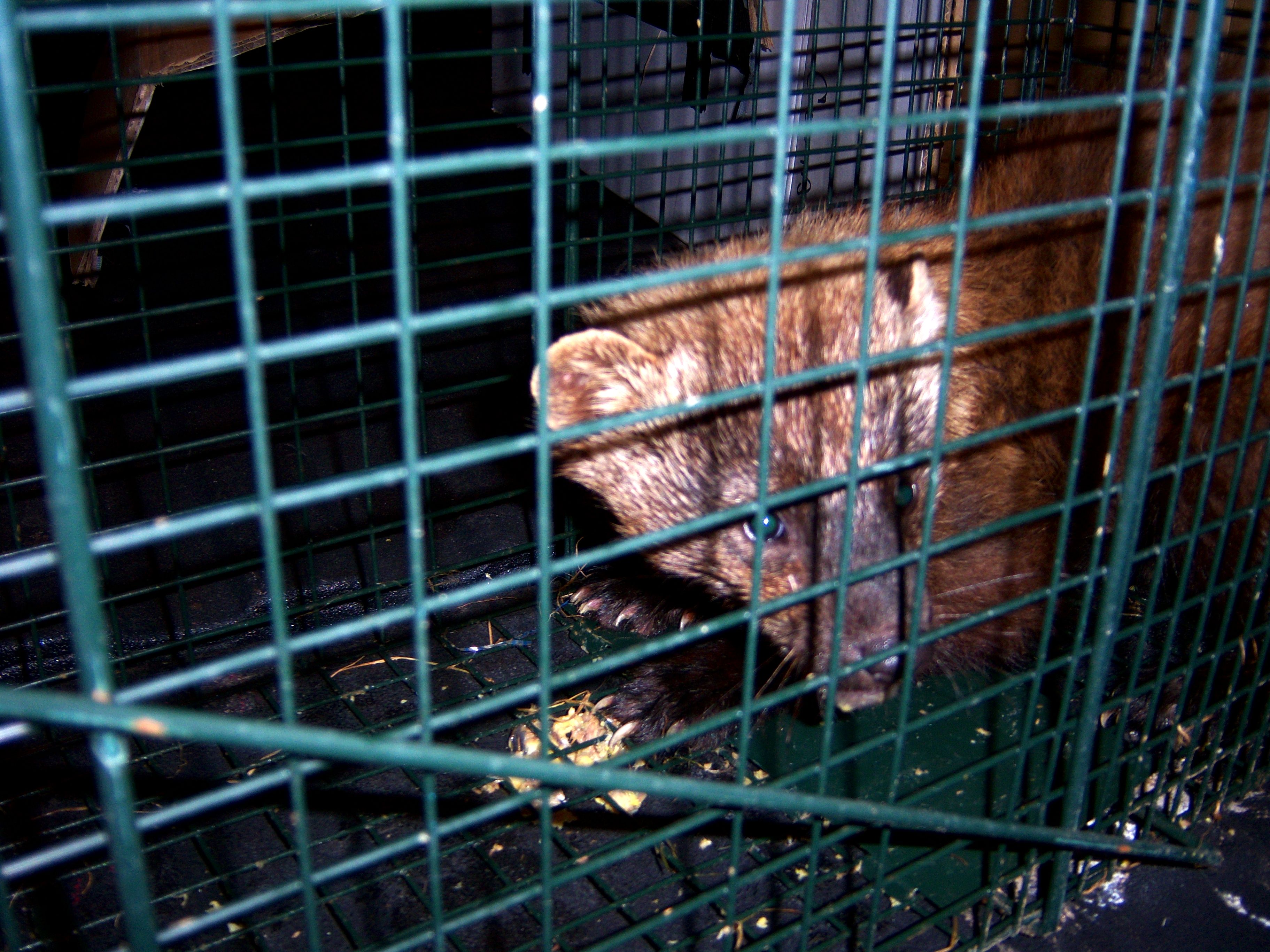
- Fish & Wildlife
- Wildlife Sources
- Nuisance Wildlife
- Current: Faq’s and Solutions to Nuisance Wildlife
Faq’s and Solutions to Nuisance Wildlife
A raccoon (or squirrel or opossum) is within my attic room, so what can I actually do?
If you’re the homeowner or tenant, you can purchase an active-trap and trap a raccoon, squirrel or opossum in your yard with no permit. Find out more about appropriate trapping methods and bait to make use of. You’ll find traps at hardware stores and garden centers.
You have to then either release your pet inside the same county on property in which you have permission, or get rid of the animal (in compliance with local ordinances). You have to report the recording or killing from the animal to some conservation officer within 72 hrs. You are able to speak to your local conservation officer by calling the neighborhood sheriff’s department or call north region headquarters at 765-473-9722 or south region headquarters at 812-837-9536.
If you don’t wish to trap yourself to it, you are able to bring in help. A summary of licensed nuisance wild animal control operators are available on the website.
A raccoon gets into my birdfeeders, so what can I actually do?
Take the birdfeeders in the home during the night, or attach baffles towards the rods or hanging wires in which the birdfeeders are affixed to prevent them from stepping into the bird seed. Also, keep bird seed from landing on the floor.
I saw a coyote within my neighborhood another night does it attack my kids or pets?
A coyote isn’t likely to fight an individual, a child, but would think about a cat, small dog, or rabbit like a meal source. A few recommendations to ensure that they’re far from home include:
- Don’t leave family pet food out during the night. Feed pets inside whenever you can get leftovers if feeding outdoors and store pet and animals feed where it’s inaccessible to wildlife
- Eliminate water bowls along with other artificial ponds (if at all possible)
- Position birdfeeders someplace that’s less inclined to attract small creatures or bring the feeders in during the night (to help keep coyotes from feeding around the bird food or another creatures)
- Don’t discard edible garbage where coyotes could possibly get into it
- Secure garbage containers
- Trim and clean shrubbery near walk out to lessen hiding cover coyotes or their prey
- Do not let pets to operate free and supply secure night time housing on their behalf
- Should you start to see coyotes around your house, discourage them by shouting, making exposure to noise or tossing rocks but NEVER corner a coyote – always provide the coyote a totally free escape route.
I discovered an hurt bird, what must i use it?
Call an authorized rehabilitator and only transport it immediately for their facility or ensure that it stays inside a box from creatures along with other humans before the rehabilitator can get it. Visit here for a summary of licensed rehabilitators on the website.
Most wild wild birds are safe by condition and/or federal law and may simply be possessed by licensed individuals.
I want assist with Canada other poultry which are creating problems on my small property. So what can I actually do?
If Canada other poultry are nesting in your yard, you are able to take away the nest and destroy or addle the eggs by happening-line and registering using the U.S. Fish and Wildlife Service. If you would like someone to help you, you are able to provide that information when registering.
To get rid of adult other poultry, you will have to contact the DNR to get the names of individuals who are allowed capture and relocate or euthanize nuisance Canada other poultry. A summary of these people is going to be obtainable in March of 2010. To learn more, please contact the urban wildlife biologist at (812) 334-1137.
Learn to assist in preventing issues with Canada other poultry on the website.
I discovered a nest of baby rabbits or squirrels (or any other baby creatures) and i believe mom has abandoned them, how do you take proper care of them?
To begin with, most baby creatures that might be haven’t been abandoned. Adult creatures frequently leave their youthful to forage for food, however they rarely abandon their youthful. For instance, mother rabbits only go to the nest a few occasions each day. If your bird has fallen, it’s alright to lightly give it back towards the nest.
The easiest method to make certain a pet is really orphaned would be to wait and appearance it periodically. If you’re unsure, place some strings or sticks over the nest. If they’re later disturbed, mom has came back.
If you discover what appears like an orphaned fawn, just wait and appearance it periodically. When considering action, recall the following:
- When the fawn isn’t hurt, mom is probably nearby.
- Leave the fawn alone and it is mother will most likely come and obtain it. Deer may take better proper care of their youthful than the usual human can.
- Human scent around the fawn won’t avoid the mother from taking proper care of it.
- If you don’t use whatever deer nearby, have somebody have a lookout nearby that may watch the fawn without having to be seen through the mother. Generally, mom is and obtain the fawn once you leave the region.
Keep in mind that wild creatures are simply that – wild creatures – and really should remain within the wild. White-colored-tailed deer are safe legally and can’t be stored like a pet. Wild rabbits, squirrels, and many other types of creatures based in the wild will also be controlled through the DNR. Please call an authorized rehabilitator in your area and only transport the creatures towards the rehabilitator immediately, or keep these questions box before the rehabilitator arrives. You will find a listing of licensed rehabilitators on the website. Wild animal rehabilitation permits are issued to qualified those who consume sick, hurt, or orphaned wild creatures using the intent of releasing them into the wild.
I discovered an infant rabbit, squirrel, raccoon, skunk, or any other baby wild animal, and i believe it’s orphaned. Can One ensure that it stays like a pet?
No, if you discover an infant wild animal that’s truly orphaned early in the year and summer time, it should be come to an authorized rehabilitator. Keep in mind that wild creatures are simply that – wild creatures – and really should remain within the wild. Most of them, including raccoons, carry a number of illnesses that may be transmitted to humans and domestic creatures. In addition, a permit is needed to help keep one like a pet, however the law doesn’t allow baby wild creatures to become stored as pets when the animal wasn’t acquired legitimately. You will find a listing of licensed rehabilitators on the website.
I discovered a defunct bird, can one ensure that it stays? Must I report it?
No, a bird can’t be stored for private use, unless of course it’s a non-protected species like a European starling, British sparrow, or feral pigeon. Other wild birds are safe by condition and/or federal law. An individual also cannot posses any parts for example down, nests, or eggs with no proper permit. You are able to donate it to some school, college, or nature center to have an educational display, however a permit will have to be acquired in the DNR to do this. Call Police Force to speak to a DNR conservation officer in regards to a special one-time permit to get it mounted and employed for an academic display.
There are lots of ordinary reasons for wild bird mortality including disease, weather occasions, predation, trauma from flying into structures, home windows or utility lines and legal pest management. In most cases, dead wild wild birds might not be routinely collected by government bodies for testing.
Based on Indiana Condition Department of Health guidelines, if you want to get rid of a defunct bird, don’t handle it together with your bare hands. Use mitts or perhaps a plastic bag switched thoroughly over your hands to get the bird and get rid of the bird/bag within the trash. You are able to follow these suggested disposal procedures whatever the reason for dying, if tests are unavailable.
Presently, the most typical illnesses of interest in wild birds are Avian Conjunctivitis, Histoplasmosis, and West Earth Virus.
If you discover a defunct crow, jay, or raptor (hawks, owls, and falcons) speak to your local health department as these wild birds might be tested for West Earth Virus inside your county.
If you discover multiple dead wild wild birds within an area, you are able to report it for your District Wildlife Biologist. They’ll let you know if further action is required or maybe the wild birds ought to be tested.
I discovered a defunct or hurt bat, what must i use it?
There are lots of ordinary reasons for bat mortality including disease, weather occasions, lack of fluids, predation, pesticide/pesticide treatments, or immature bats (separated from nursing colonies). Sometimes, dead or sick bats might be collected by government bodies for testing.
Don’t get a bat with bare hands. Bats can transport rabies and extreme care ought to be used. Use protective durable leather mitts or containers or scoop up having a shovel or any other equipment and bury it.
If there’s any question a thief or animal continues to be bitten or scratched through the bat, leave the bat alone and call and phone your wellbeing department to create plans to achieve the bat tested for rabies.
The Cdc and Prevention has details about bats and rabies online.
To acquire more information about illnesses transported by bats:
- rabies
- histoplasmosis
My child introduced home a turtle, are we able to ensure that it stays?
For many common species, you actually can. However, this will depend on what sort of turtle it’s. A red-eared slider or colored turtle (usually based in the water) along with a couple of other species could be collected in the wild and stored with no permit, but there’s a restriction of 4 per species, and also the person should have an angling or hunting license (unless of course exempt, for example children younger than 18). Box turtles, that are generally seen crossing roads within the springtime, can’t be collected in the wild and stored like a pet. If you notice one crossing the street, it may be selected up and moved to another side of road within the direction it had been heading, however it can’t be introduced home and stored like a pet. If you discover one that’s hurt, please speak to a licensed rehabilitator. You will find a listing of licensed rehabilitators on the website. Should you choose choose to have a red-eared slider or colored turtle like a pet, please be aware that they are able to carry salmonella and safeguards should be taken when handling them, especially by small children. Please read details about salmonella in the Cdc and Prevention. These turtles may also develop close to 8 inches across and wish special food and lighting. To learn more about rules on reptiles and amphibians, visit our website.
Resourse: http://in.gov/dnr/fishwild/
Nuisance Wildlife
Video COMMENTS:
Matt Sparlin: The state is over run with nuisance animals and the state admittedly does nothing
Comments are closed here.
